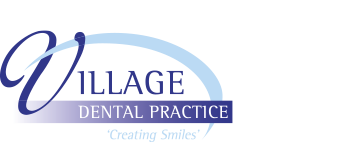Dental Hygienist
Even with really good home maintenance of our teeth, it is not possible to reach under the gums where food can get trapped. Overtime, bacteria builds up and causes plaque which can lead to gum disease.

Dental professionals constantly stress the importance of regular dental exams and professional cleans (scale and polishes). For most patients this is undertaken twice a year. It makes sense that dental care should be a crucial and lifelong activity that you should invest in and seek out time for. Regular intervention is likely to prevent pain, unwelcome aesthetics and increased expense later in life. However, research suggests that the rise for dental check-ups in the UK has only grown by 20% over the past 40 years. In fact, almost half of Brits still do not attend check-ups every 24 months. So, how does that impact their oral health and what are they missing out?
Professional oral care consists of many interconnected layers. Ideally, you see a dental hygienist (or your dentist) during an appointment for a routine dental scale and polish. However, not all patients are aware of the duties of a dental hygienist, let alone a dental therapist. Hygiene therapy is a relatively new branch of dental science usually operated by an authorized dental hygienist or a dental therapist. A dental hygienist or a therapist is a licensed oral care professional who works closely with a dental care team, providing both clinical and therapeutic dental care and awareness.
The British Society of Dental Hygiene Therapy (BSDHT) informs that hygiene therapy is a conglomerate effort by dental hygienists and dental therapists whose role is usually twofold. They are trained to have both clinical and health promotional responsibilities. Clinically, they help to treat and prevent periodontal or gum diseases by supra-ginigival scaling and sub-gingival cleaning, while therapists are also able to provide restorations, and performing minor dental surgeries. Their health promotional role includes educating, motivating and encouraging patients to undertake oral hygiene and dietary advice.
Visiting a dental hygienist or therapist comes with a set of benefits and goodwill for your mouth. Armed with the right equipment, dental hygienists and therapists can determine the health status of your oral cavity and help you improve it long-term.
Prior to any procedure, dental hygienists and therapists will check for any tartar or plaque on your teeth. This tells a lot about one’s attempt at maintaining adequate oral hygiene. Tartar or dental calculus are hard deposits appearing on the teeth surfaces as a result of suboptimal oral hygiene practices and can only be removed professionally.
Your dental hygienist/therapist can determine the presence of tartar and will seek out for scaling or cleaning of teeth with the help of non-invasive specialized instruments. Please do not attempt to remove them at home as you may damage your teeth or gums.
If you are a tea, coffee or red wine drinker or smoke tobacco you will start developing yellow or brown staining on your teeth that does not come off with regular brushing. In this case you will require appointments for professional teeth cleaning.
Stained or yellow teeth can make you feel self-conscious about your smile, so seeking proper cleaning as soon as possible is a smart move. Your dental hygienist or therapist will help you brighten your dull smile.
A mouth with poor oral hygiene becomes a breeding ground for bacteria that compromises the health of the gums. Gums if swollen, red, tender or bleeding can be an indication for early gum disease known as gingivitis. If left untreated, this can turn into periodontal (gum) disease. This can cause severe gum and bone loss and can even go as far as causing tooth loss altogether.
If your gums are inflamed and infected, you may also develop bad breath. With proper dental cleaning from the dental professional and correct education for home management, your dental hygienist/therapist ensures that you are able to manage of all these problems.
Maintaining proper oral hygiene is essential for your health. Brushing twice a day and flossing or using interdental brushes at least once a day are some of the ways you can help your mouth fight off bacteria and diseases. Your dental care professional often customises a plan that best suits your needs.
A dental hygienist or therapist makes sure to demonstrate the most effective and efficient way for you to brush your teeth. From toothbrushing techniques to the use of interdental brushes and floss, your dental hygienist has you covered and ready to remove the bacteria from your teeth, reducing the chance of decay.
One of the prime reasons for decaying, dirty or unhealthy teeth is the excessive intake of sugary food. Your dental hygienist/therapist makes sure you understand the dietary impact on your oral health and helps you make valuable changes in your dietary regimen.
Dental hygienists or therapists are expected to apply prophylactic or antibacterial materials like fissure sealants or topical fluoride to the teeth surfaces to prevent tooth decay.
Lesions in your mouth might go unnoticed by you but your dental hygienist/therapist can verify whether you have something to worry about or not. Early signs for oral cancer can be tricky to uncover but with the right dental equipment, you are able to discover such symptoms earlier and get treatment swifter.

The Village Dental Practice is a family dentist based in Whickham, Newcastle Upon Tyne, offering both NHS and Private Dental treatments.
Riverdale TradeCo Ltd trading as Village Dental Practice is a credit broker, authorised and regulated by the Financial Conduct Authority. Registered in England & Wales 11506562
Where required by law, loans will be regulated by the Financial Conduct Authority and the Consumer Credit Act. Credit is provided by Wesleyan Bank Limited who is authorised by the Prudential Regulation Authority and regulated by the Financial Conduct Authority and the Prudential Regulation Authority. Wesleyan Bank Ltd (Registered in England and Wales No 2839202) Registered Office: PO Box 3420, Colmore Circus, Birmingham B4 6AE. Tel: 0800 358 1122. www.wesleyanbank.co.uk Terms and conditions apply.
